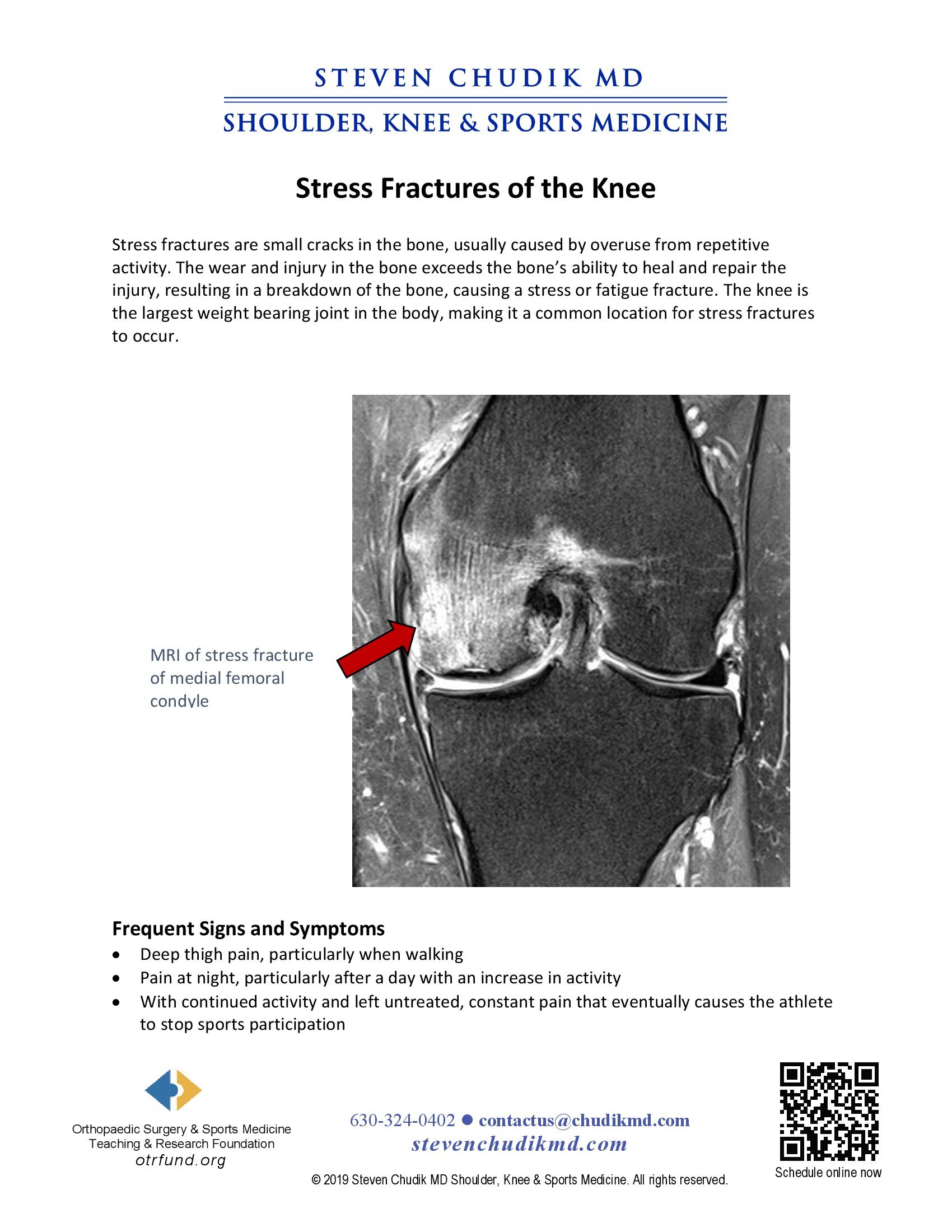 Are you ready "fore" golf?
Are you ready "fore" golf?
Stress fractures are small cracks in the bone, usually caused by overuse from repetitive activity. The wear and injury in the bone exceeds the bone’s ability to heal and repair the injury, resulting in a breakdown of the bone, causing a stress or fatigue fracture. The knee is the largest weight bearing joint in the body, making it a common location for stress fractures to occur.
Stress fractures are caused by overuse from repetitive activity, which leads to breakdown of the tissues. Continued activity, before the breakdown can be repaired, leads to inflammation and breakdown of bone tissue. This breakdown exceeds the ability of the bone to heal completely, resulting in injury, more inflammation, and pain.
Conservative treatment consists of a period of non-weight bearing followed by a gradual return to activity once pain has subsided. Often, referral to a physical therapist or athletic trainer is recommended. For patients with persistent symptoms (swelling, pain, functional limitations) despite conservative treatment, with significant stress reaction identified on MRI, surgery to promote the healing of the damaged bone is usually recommended.
The first line of operative treatment usually involves arthroscopic surgery to evaluate the joint and assess the integrity of the cartilage surface. To initiate the bone healing process, a percutaneous (through the skin) drilling procedure is performed with small pins to the area of the bone affected by stress injury. By drilling the bone, this stimulates bleeding to the area of injury to promote accelerated healing.
Extensive rehabilitation is required following this restorative procedure. Following an initial
six-week period of non-weight bearing, gentle passive (without using your own muscles) movement of the joint, range-of-motion, stretching and strengthening exercises for the joint and surrounding muscles are necessary. This typically requires the assistance of a physical therapist and at least three to six months before return to athletic activities can occur.

Content provided by Dr. Chudik not to be used for diagnosis and treatment. You can receive a proper evaluation and diagnosis by making an appointment with Dr. Chudik